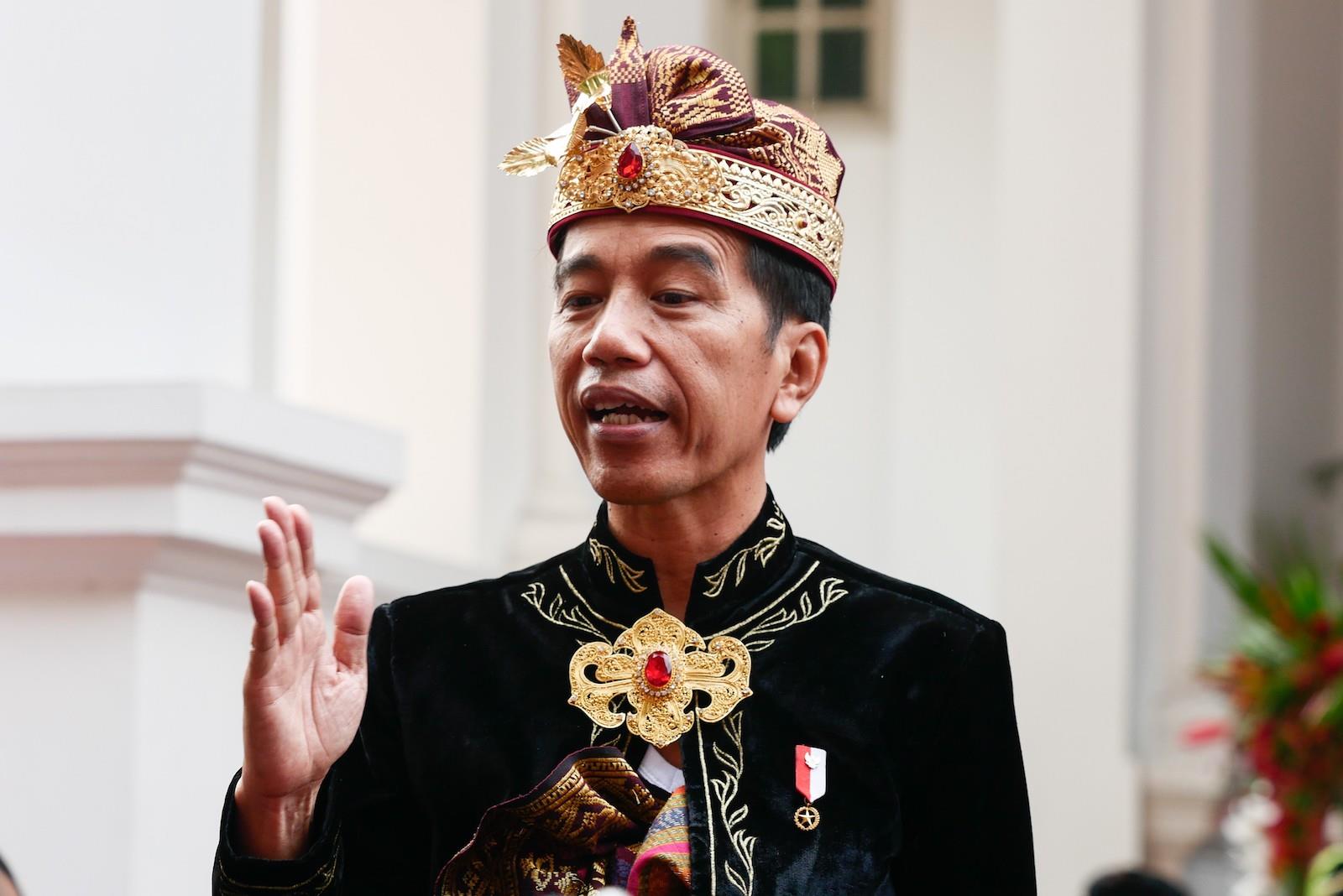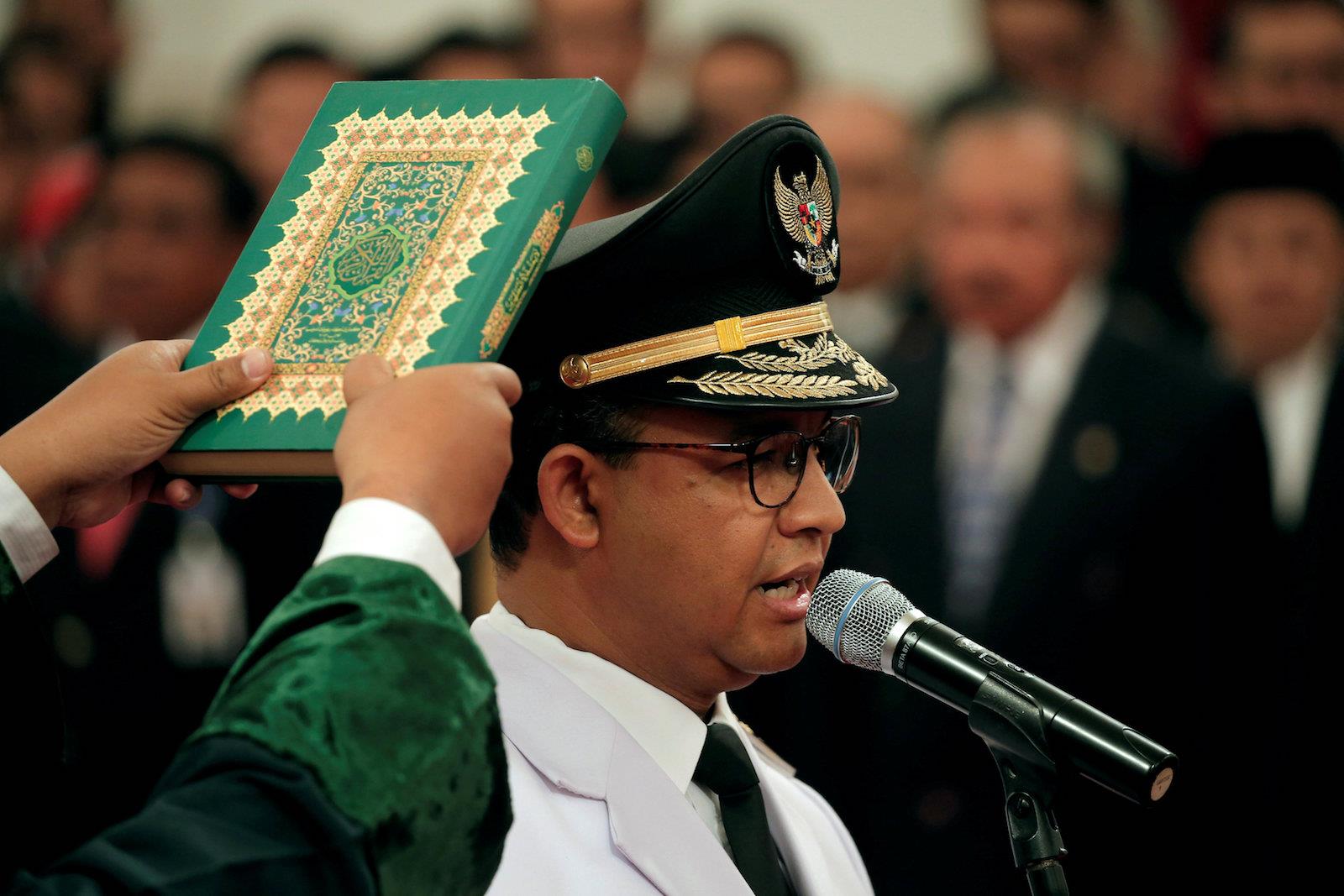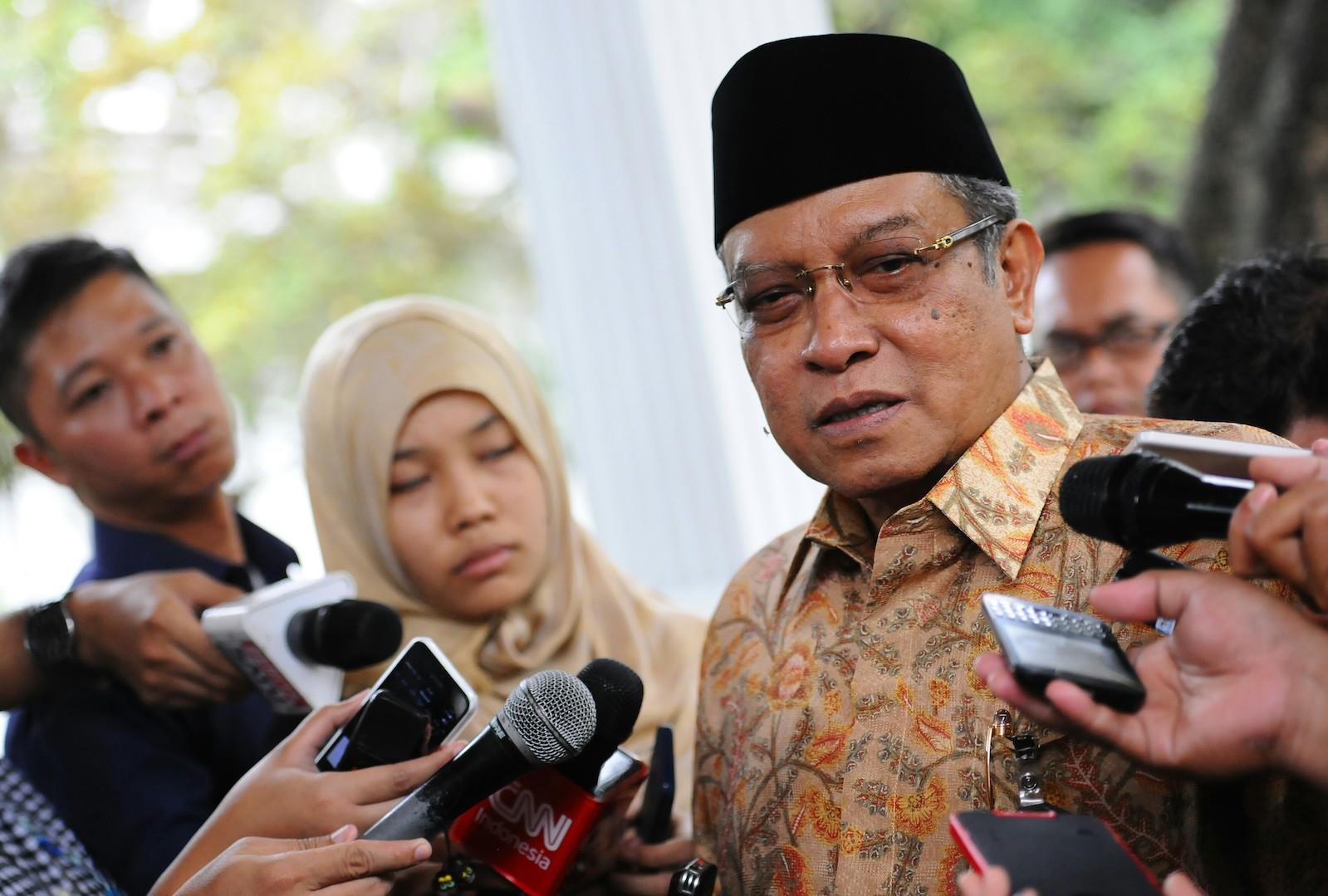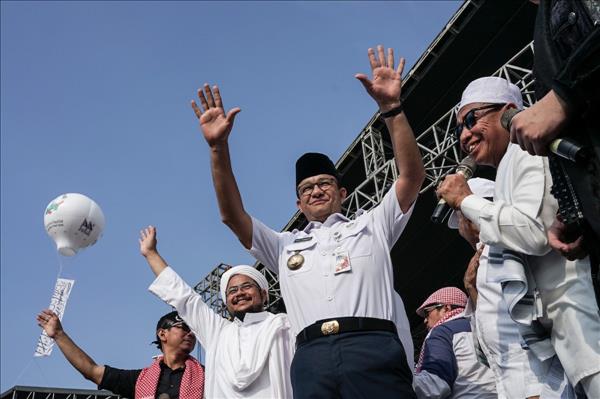(MENAFN- Asia Times) JAKARTA – Unproven allegations of corruption and election irregularities leveled against recently-retired Jakarta governor Anies Baswedan suggest a gathering tide of concern in Indonesia's nationalist camp over recent polls showing the Islamist-backed candidate making substantial gains in the 2024 presidential race.
A December 1 survey by Indikator Politik, for example, saw him trailing front-runner Ganjar Pranowo, 54, the popular governor of Central Java, by less than two percentage points – 33.9% to 32.2% – with Defense Minister Prabowo Subianto, 71, well back on 23.9%.
In September, a Centre for Strategic and International Studies (CSIS) poll also had the 53-year-old academic-turned-politician running second in the same three-way race with 27.5%, behind Pranowo on 33.3%. In a two-way contest, Pranowo led by 47.8% to 43.9%.
A more recent Chart Polika regional survey has Baswedan far behind in Central Java, Pranowo's home province - and to a lesser extent in East Java - but leading in Jakarta, West Java and neighboring Banten, Sumatra, Sulawesi and Kalimantan.
After leading in most polls up until the middle of 2022, Prabowo has fallen away significantly in what analysts see as a sign that under-40 voters, who make up about 54% of the electorate, increasingly favor youth over party loyalty.
Baswedan is supported by the Sharia-based Justice and Prosperity Party (PKS), the sole opposition in the 575-seat House of Representatives (DPR), along with ex-president Susilo Bambang Yudhoyono's centrist Democrat Party (DP) and media magnate Surya Paloh's National Democrat Party (Nasdem).
The three-party alliance holds 24% of parliament's seats, allowing it to meet the 20% threshold for nominating a presidential candidate. Only Pranowo's Indonesian Democratic Party for Struggle (PDI-P) has sufficient seats to nominate a candidate on its own.
Paloh's crucial decision to support Baswedan's bid angered Widodo, but apparently worried about creating an impression of political instability, he has so far resisted replacing the three Nasdem ministers in his eight-party coalition despite pressure from other party leaders.

Indonesian President Joko Widodo is in his second and last term as president. Photo: AFP / Anadolu Agency / Anton Raharjo
Most at risk would appear to be Communications Minister Johnny Plate, who reportedly ignored a presidential order to postpone the conversion from analog to digital television broadcasting until funding is available to allow low-income families to acquire digital switch boxes.
Baswedan is still trying to live down the image created during massive 2016-17 Islamist demonstrations that ended the political career of previous Jakarta governor Basuki Tjahaja Purnama, a Widodo ally. Purnama subsequently served a two-year jail term for blasphemy.
Paloh's precipitative move, similar to his surprise early backing of Widodo in 2014, has given Baswedan the broader base he needs to reinvent himself as a moderate Muslim leader committed to secular-nationalist principles.
In fact, he comes from a moderate Arab-Indonesian Muslim family whose patriarch, Abdurrahman Baswedan, was declared a national hero in 2018 after a storied life as an independence fighter, journalist and one of Indonesia's first diplomats.
Baswedan's father was an educator and the governor himself undertook his graduate studies at the University of Maryland School of Public Policy and later at the University of Northern Illinois, where he earned a doctorate in political science.
In 2007, he became rector of Jakarta's Paramadina University, serving until 2014 when he was appointed education minister in Widodo's first administration, a job he held for only two years because of rumored policy differences with the president.
The Widodo government has already been accused of trying to throw obstacles in the path of Baswedan's candidacy, which may be responsible for the sympathetic coverage he is receiving in many segments of the Indonesian media.
Last September, the governor underwent 11 hours of questioning by Anti-Corruption Commission (KPK) investigators looking into alleged irregularities in funding for Jakarta's hosting of a 2021 Formula E motor race through city streets last June.
According to media reports, the city government spent 560 billion rupiah (US$37.6 million) from its own budget to pay the commitment fee to host Formula E races until 2024. Building the circuit and viewing stands cost an extra 120 billion rupiah.
KPK chairman Firli Bahuri, a former police general, was forced to deny allegations that the investigation was politically motivated.“This is purely a legal proceeding,” he said.“Nothing we do in the KPK goes beyond our duties of upholding the law.”

Jakarta Governor Anies Baswedan during a swearing-in ceremony at the Presidential Palace in Jakarta, Indonesia, October 16, 2017. Photo: Agencies / Pool
All the same, Baswedan continues to find himself in the crosshairs, with local governments in Aceh, Riau and the West Java districts of Tasikmalaya and Ciamis recently revoking permits for gatherings he planned to attend as part of a so-called political safari.
The General Elections Commission (KPU) recently dismissed charges that Baswedan was engaging in premature campaigning, noting that presidential and vice-presidential candidates would not be formally registered until next year.
Alexander Arifianto, a research fellow at Singapore's Institute of Defense and Strategic Studies (IDSS), believes Baswedan's surge is due to continuing uncertainty over who PDI-P leader Megawati Sukarnoputri will choose as her candidate.
Megawati's dithering almost cost Widodo the election in 2014. But this time, there are signs she will choose Pranowo over her daughter, House of Representatives (DPR) Speaker Puan Maharani, who is polling in the low single digits and may end up getting the party chairmanship instead.
While insiders describe the opposition alliance as solid, Baswedan still has to pick a running mate, likely a choice between Yudhoyono's 44-year-old son, Agus Harimurti, or PKS politician Ahmad Heryawan, 56, the former two-term governor of West Java.
Despite having no experience in public office, Harimurti would appear to have the inside track. Nasdem is not proposing a candidate, but as one insider put it:“We all understand we have to pick someone who has political leverage nationally, whose party has a strong hold on at least two provinces, and who has name recognition.”
So far, Baswedan hasn't been willing to commit to either, but analysts believe he will want someone who will provide a balanced ticket, the one factor that could decide how well he performs at the polls in 2024.
Earlier this month, Baswedan received the endorsement of perennial politician Din Syamsuddin, former two-term chairman of the moderate mass Muslim organization Muhammadiyah, who lauded the governor for his“high integrity, capability and religious devoutness.”
A similar endorsement has come from Said Aqil Siradj, former chairman of Nahdlatul Ulama, the country's largest mass Muslim organization, who also praised Baswedan as“an intellectual with a good vision and mission and (is) also a devout Muslim.”

Former NU chairman Said Aqil Siradj likes Baswedan's presidential chances. Image: Wikimedia
At the same time, Siradj condemned the“oligarchic system” that dominates Indonesia's political life, a reference to Widodo's bulky eight-party coalition and the way democracy Jakarta-style has evolved to a point where there is little room for checks and balances.
While Siradj has not formally endorsed Baswedan, he appears to have distanced himself from Widodo since losing his re-election bid to Yahya Cholil Staquf, a rival 55-year-old cleric known to be close to the president's inner circle.
Arifianto notes, however, that Siradj still commands considerable influence given his ties to senior NU clerics such as conservative Vice-President Ma'ruf Amin and Muhammad Yahyah Waloni, a member of Widodo's current council of presidential advisers.























Comments
No comment